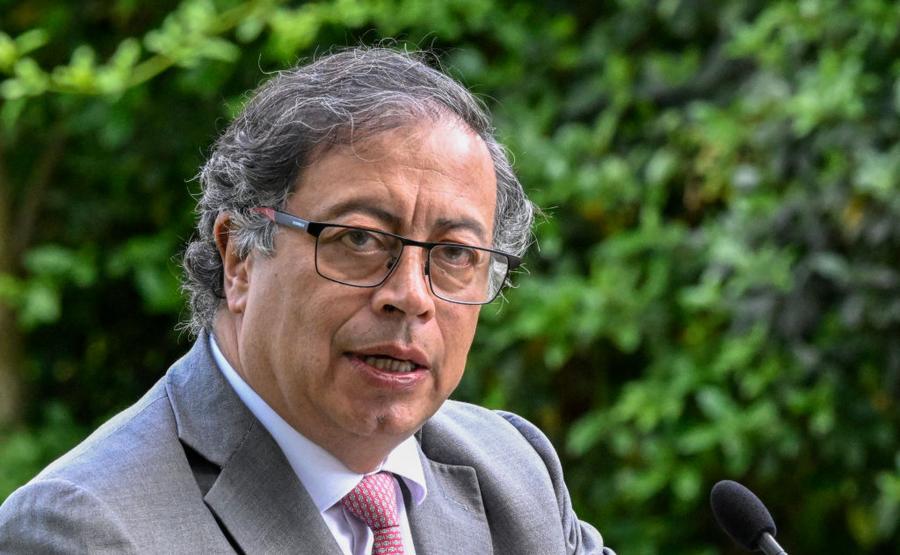What is Gustavo Petro's Net Worth and Salary?
Gustavo Petro is a Colombian politician who has a net worth of $500 thousand. Gustavo Petro is best known for serving as the president of Colombia, having been elected in 2022. Previously, he was a senator and member of the Chamber of Representatives, and from 2012 to 2015 was the mayor of Bogotá. Petro is the founder and leader of the leftwing political party Humane Colombia.
Financial Disclosures & Salary
According to Colombia's public asset declaration system, Gustavo does not have extensive business holdings, luxury properties, or major investments. His primary asset is his residence, which carries a mortgage.
As President of Colombia, Gustavo Petro earns approximately 37–40 million Colombian pesos per month (around $9,000 to $10,000 USD monthly, depending on exchange rates). That equates to about $110,000–$120,000 USD per year.
Early Life and Education
Gustavo Petro was born on April 19, 1960 in Ciénaga de Oro, Colombia to Clara and Gustavo. He has Italian ancestry through both of his parents. In the 1970s, the family moved to Zipaquirá seeking a better future. When Petro was 17, he became involved in the 19th of April Movement (M-19), an urban guerrilla group coincidentally named after his own date of birth. He eventually emerged as a leader of the organization. In 1985, Petro was arrested and tortured by the Colombian army for his affiliation with M-19, and sentenced to 18 months in prison.
For his higher education, Petro went to the Universidad Externado de Colombia, from which he obtained a degree in economics. He later enrolled in graduate school at the Universidad Javeriana, but didn't graduate. Subsequently, Petro went to Belgium to attend graduate school at the Université Catholique de Louvain. He also began working toward a doctoral degree in public administration at the University of Salamanca in Spain.
Chamber of Representatives and Senate
Following the demobilization of M-19 in 1990, Petro and other members of the group formed the M-19 Democratic Alliance. In the 1991 Colombian parliamentary election, the party won numerous seats in the Chamber of Representatives and Petro was elected to the Chamber, representing the department of Cundinamarca. His first tenure in the Chamber lasted until mid-1994; he was later reelected in 1998.
In 2002, Petro began representing Bogotá as a member of the Vía Alterna movement, which he had founded with former M-19 members. He subsequently helped form the electoral coalition the Independent Democratic Pole, which merged with the Alternativa Democrática in 2005 to create the Alternative Democratic Pole (PDA). As a member of the PDA, Petro was elected to the Colombian Senate in 2006. He served in the Senate for four years before he stepped down to run in the 2010 presidential election. Petro later served in the Senate from 2018 to 2022.
Mayor of Bogotá
In late 2011, Petro was elected mayor of Bogotá as a member of his newly formed political party Humane Colombia. He sought to combat poverty and inequality, protect the environment from climate change, fight back against institutional corruption, and strengthen the voting power of the citizenry. During his mayoralty through 2015, Petro helped to reduce both poverty and the homicide rate in Bogotá. He also helped establish centers for birth control and abortion, and oversaw the creation of a center for LGBTQ citizens. However, Petro faced significant opposition during his tenure, and endured a recall process that removed him from office in March of 2014. Ultimately, he was reinstated the next month to finish his term.

(Photo by Horacio Villalobos#Corbis/Corbis via Getty Images)
President of Colombia
After unsuccessfully running for president in 2010 and 2018, Petro was finally elected in the second round of the 2022 presidential election, defeating Rodolfo Hernández Suárez. Inaugurated in August, he became the 34th president of Colombia. Shortly after Petro was sworn in, chief of the army Enrique Zapateiro resigned; he was replaced by a new military command intended to better respect "human rights and public freedoms." On August 11, Colombia and Venezuela resumed diplomatic relations after years of conflict. Due to Petro's many structural reforms, a series of protests broke out in Colombia in September, and continued on and off throughout 2023. As president, he has focused on such issues as agrarian reform, environmental protection, LGBTQ rights, and preventive healthcare.
Personal Life
Petro married his first wife, childhood sweetheart Katia Burgos, in 1986. They had a son, Nicolás, before divorcing in 1992. Petro subsequently married Mary Luz Herrán, whom he had first met while on the run from the government due to his activities with M-19. The pair had a daughter named Andreá and a son named Andrés, and divorced in 2000. Petro then wed his third wife, Verónica Alcocer; they have two daughters named Sofía and Antonella. In 2022, Petro adopted his wife's son from a previous relationship, who like his first son is named Nicolás.
/2025/04/Gustavo-Petro.jpg)
/2022/06/Rodrigo-Duterte.jpg)
/2013/08/fox.jpg)
/2013/12/Francois-Hollande-1.jpg)
/2011/03/Mahmoud-Ahmadinejad.jpg)
:strip_exif()/2020/06/taylor.png)
/2019/01/James-Altucher.jpg)
/2013/12/dan.jpg)
/2011/12/John-Mara-1.jpg)
/2010/12/kate-1.jpg)
/2020/10/the-miz.png)
/2011/12/Rooney-Mara1.jpg)
/2020/08/gc-1.jpg)
/2014/04/GettyImages-886617106.jpg)
/2011/01/Aaron-Rodgers.jpg)
/2022/10/peter-krause.jpg)
/2010/03/emil.jpg)
/2025/04/Gustavo-Petro.jpg)
/2022/06/Rodrigo-Duterte.jpg)
/2019/06/Andres-Manuel-Lopez.jpg)
/2022/05/Nayib-Bukele.jpg)
/2015/05/GettyImages-524145188.jpg)
/2023/08/Lyndon-B.-Johnson.jpg)
/2023/03/Alexei-Navalny.jpg)